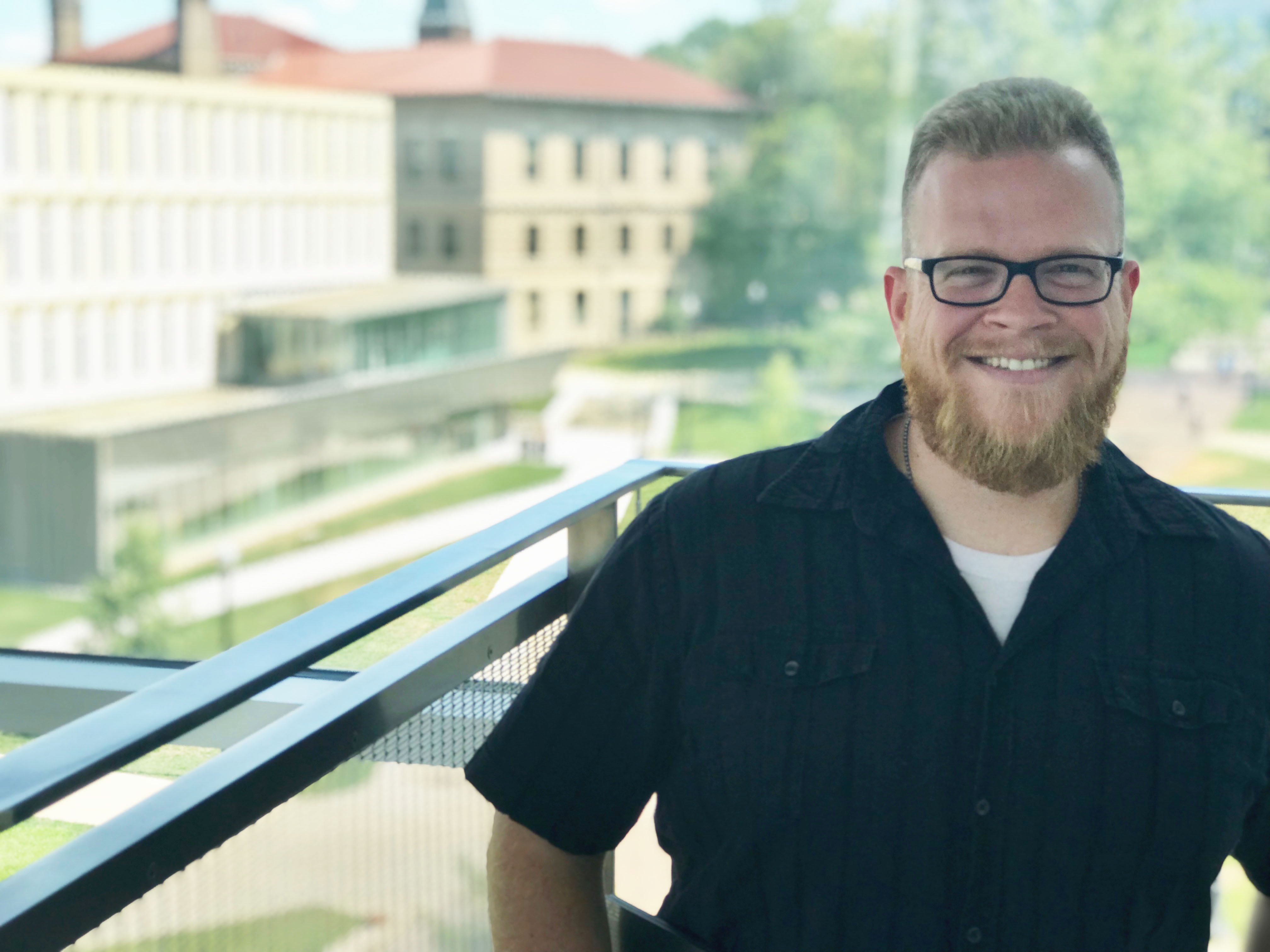Doctoral student advocates for military and veteran students at CPH
David Hibler, a doctoral student of environmental health sciences, was named the first College of Public Health veteran student advocate, a position created to support military and veteran students within the college.
By Erinn Aulfinger

David Hibler was enlisted in the army while pursuing his undergraduate degrees in biology and psychology at The Ohio State University. He began his time at Ohio State approximately three weeks after coming home from basic training and left for mobilizations and deployments throughout his college experience.
“After my first deployment, I was back in a classroom at Ohio State within three days of getting home,” Hibler said. “It is a huge transition from being in a combat zone, getting fired at and having a whole list of responsibilities that you need to take care of versus sitting in a classroom and just trying to learn the material and pass the exams.”
The transition from combat to classroom inspired Hibler to become a mentor to veteran and military students at Ohio State. It was in graduate school at Ohio State when he became the first point of contact for many of his peers who faced challenges during the transition to civilian life.
Currently on Ohio State’s campus there are 1,800 veterans, dependents and active duty members; 1,400 current faculty and staff veterans; and over 400 Reserve Officer Training Corps program participants, according to the Office of Military and Veterans Services.
Mike Carrell, assistant vice provost and director of the Office of Military and Veterans Services, began the donor-funded program in 2012. He developed the student advocate program university-wide to build and maintain military and veteran communities throughout campus.
Carrell said the program grew from seven students in its first year to 31 current student advocates at Ohio State and its regional campuses.
“[The new program] helps veterans get together with other people so they can feel a little more connected and can find people who have shared similar experiences to themselves,” Hibler said. “Nobody really understands what people have to go through on deployment besides someone who has been there. You can try to explain all you want, but it’s nothing like living through it.”
Mark Weir, associate professor of environmental health sciences and Hibler’s faculty advisor for the CPH student advocate position, said that this program intends to build a veteran and military community tailored to public health to support members and educate staff and faculty on the challenges this group faces.
“Ohio State is one of the leading universities on how much time and support they put into military students, but there is still work to be done,” Weir said. “It is a community that is typically not going to open up and admit to the need for this kind of help in some cases. It is a community I have either been directly or indirectly involved with for a long time, and I've noticed is not typically focused on in this type of way.”
In 2018, College Consensus ranked Ohio State as the 8th best college in the country for military and veteran students.
Hibler said he hopes that the interdisciplinary networking opportunities and social and speaker events will establish the program’s focus on fostering connection within the veteran and military body at Ohio State. He intends to focus on growing the program, as well as potentially establishing a scholarship and fellowship fund to help military and veteran students throughout every aspect of their college experience.
“Being a veteran means that you didn't live the normal life,” Hibler said. “At some point in time you [were] taken off the traditional path and had to do some things that ‘normal’ students don't have to deal with or really understand. When you see the majority of the people around you getting to walk down the traditional path toward what is generally considered success, without having to carry the same kind of things that are in the pack on your back, it can be very disheartening and it can be a reason that a lot of veterans give up.”
“That's why I want to help. This type of program didn't exist when I was doing my undergrad here, and I know that it can make a huge difference in the lives of those that give so much to us.”
About The Ohio State University College of Public Health
The Ohio State University College of Public Health is a leader in educating students, creating new knowledge through research, and improving the livelihoods and well-being of people in Ohio and beyond. The College's divisions include biostatistics, environmental health sciences, epidemiology, health behavior and health promotion, and health services management and policy. It is ranked 22nd among all colleges and programs of public health in the nation, and first in Ohio, by U.S. News and World Report. Its specialty programs are also considered among the best in the country. The MHA program is ranked 5th and the health policy and management specialty is ranked 21st.